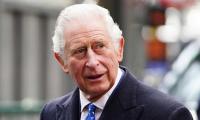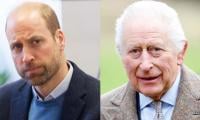the next election as a chance to reset the score in Karachi. A new range of younger MQM leaders will be promoted, both as part of an electoral strategy, and to purge the face of the party of some of the elder statesmen – many of whom have been sullied by the face-off against Zulfiqar Mirza and the PML-N (respectively). The ANP will stake its claim to newness by informing voters of the quiet confidence with which it has tried to manage the most difficult period in the history of the Khyber-Pakhtunkhwa province. And, oh, there’s the issue of the next election being the first for the province with its “new” name. Gifted to it by the “new” ANP. Most of all, the parties that have never had power, like the PTI, will offer themselves as new – because, of course, they’ve never held power before.
While they all clamour to be “new,” the political parties will also struggle to demonstrate that they represent “clean” politics. Each of them will make a case for how they represent the antithesis of the broken and corrupt politics that plagues all political systems, not just Pakistan’s. They will meet varying levels of success in this quest.
The most captivating disconnect, therefore, will not be between new and old politics, or between clean and dirty politics. The most captivating disconnect will be between the “political” and the “anti-politics.” Quite rightly, many commentators (most lucidly, Badar Alam for Dawn) have observed that there is a clear sentiment within the young supporters of the PTI that sneers at traditional party politics, not just because they practice patronage politics, or because they may be rife with corrupt politicians. Instead, there is a generic contempt among a substantial number of young, urban Pakistanis for the political system as a whole.
This is an important critique. The contempt for the political system as a whole is indeed a major challenge to solving the civil-military divide in Pakistan. It is this contempt that drives people, sick of dysfunctional governments, into the arms of eager corps commanders, rallying behind their chief of the army staff when the military has taken over power. This illegal and politically cancerous event has happened enough times in Pakistan for all Pakistanis to be legitimately concerned about it happening again – explicitly, or by stealth.
In the pulsating energy of the youthful and vibrant crowds that inform the PTI’s newfound prominence it is not clear if there is any line at all between the two distinct phenomena. A healthy disregard for failed governance models, systemic patronage and institutionalised corruption is one thing. A dangerous contempt for the political traditions of Pakistan, including the imprisonment, torture and murder of political leaders, and the systemic demonisation of rural politics is another. This distinction is not just a conceptual or philosophical issue. It is much deeper and has many serious implications for the next elections, for the PTI and for other parties.
As news of former PML-Q and PPP heavyweights joining the PTI spreads, many would ask whether Imran Khan should be courting people that are symbols of “old” politics, no matter how squeaky clean they may be. On Twitter, Marvi Memon openly questioned the wisdom of filling leadership gaps in a party of the “new” with faces of “old.” On the other hand, many are asking what the purpose of excluding people from the PTI would be. In a first-past-the-post electoral system, any politics, new or old, needs people who can win elections. If they have clean records, does it make sense to stack the party with unknowns who cannot win?
This dilemma is one that will be faced by any new entrant to the political system. There is probably a healthy split of opinion on this, not just among PTI supporters but among reformers within the traditional parties, from the PPP to the MQM and from the JUI-F to the PML-N.
Any new political movement must locate itself within the broader civil-military divide in Pakistan, and have a clear take on how to address it. To do this, it must actively seek to reject the “anti-politics” of some within the educated, urban space in Pakistan. Concurrently, however, new politics must be patient and breed leadership over several election cycles. Rejecting “anti-politics” does not necessitate having to accept or embrace the parts of the political system and culture that are broken, do not work, and need wholesale transformation.
No transformative agenda was ever achieved with a single “tsunami.” Pakistan is poised for change. Absorbing politicians from the mainstream into a party trying to establish a new culture is fine. Absorbing the culture that those politicians represent is not. Those that organically and patiently build a new political culture from the ground up will be the one that will achieve real change.
The writer advises governments, donors and NGOs on public policy.
According to Chanakya, secret of strong nation lies in ability to protect its citizens
Rapid economic progress was made possible under Modi's leadership if not ‘Modi's guarantee’
Pakistan was considered water-abundant country, with per capita water availability being 5650 cubic meters in 1951
Shrine of Mian Mir.—TheNews/FileMy history professor once referred to a theory that says the developmental telos of...
If Pakistan does not take prompt and decisive action, it could find itself at forefront of world's first water conflict
Please note that dam survey team from World Bank had proposed building of this dam in 1955







